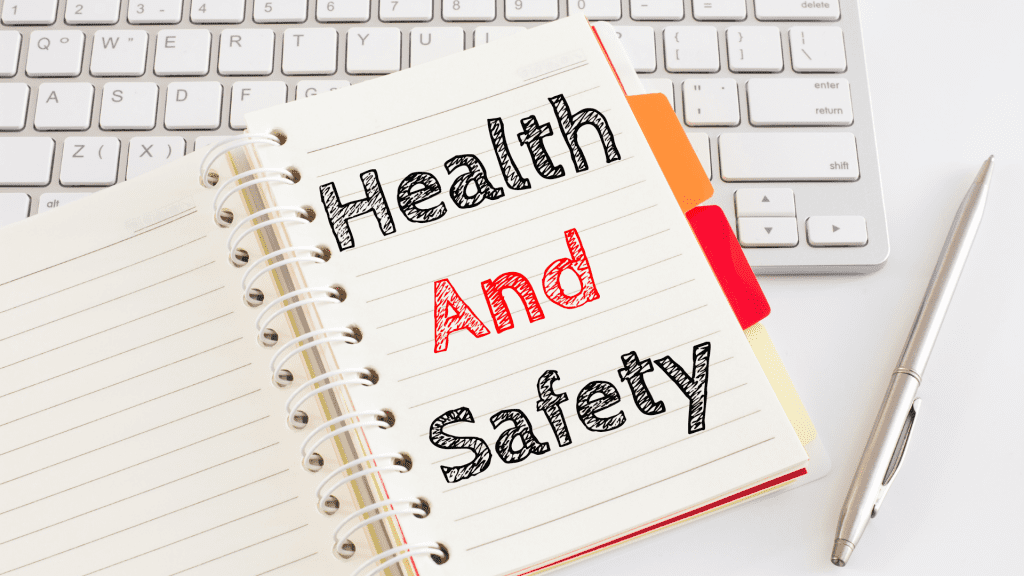
Why is Health and Safety in the Workplace Important?
Why is Health and Safety in the Workplace Important?
Health and safety in the workplace is a fundamental concern for businesses of all sizes and industries. Not only is it a legal requirement, but it is also a moral obligation and a financial necessity. Employers who prioritise health and safety ensure the well-being of their workforce by addressing both physical safety and mental health support, thereby investing in employee health which can lead to improved productivity and reduced turnover.
In this blog, we’ll explore the moral, legal, and financial reasons why health and safety in the workplace is vital. We’ll also touch on the history of workplace safety, including the Health and Safety at Work Act 1974 and its associated regulations. Finally, we’ll highlight how our safety consultancy services can support your business in meeting these critical responsibilities.

A Brief History of Health and Safety in the Workplace
The concept of workplace safety has evolved significantly over the years. In the past, workplaces were often fraught with hazards, and the protection of workers was not a priority for many employers. However, as industrialisation progressed and the scale of workplace accidents grew, the need for regulations became evident.
The Health and Safety at Work Act 1974 (HASWA) marked a turning point in workplace safety in the UK. This landmark piece of legislation set out the duties and responsibilities of employers, employees, and others to ensure a safe working environment by adhering to health and safety regulations. It established the Health and Safety Executive (HSE), an independent body tasked with enforcing workplace safety laws and providing guidance to employers. The HSE plays a crucial role in enforcing safety regulations to protect employee welfare and ensure compliance.
Over the years, various regulations have been introduced under the HSWA, including:
The Management of Health and Safety at Work Regulations 1999 (MHSWR): These regulations require employers to conduct risk assessments, implement preventive measures, and provide training to employees.
The Workplace (Health, Safety and Welfare) Regulations 1992: These regulations address the physical conditions of workplaces, such as ventilation, lighting, and sanitation.
The Personal Protective Equipment (PPE) at Work Regulations 1992: These regulations mandate the provision and use of appropriate PPE.
The Manual Handling Operations Regulations 1992: These regulations focus on reducing the risks associated with manual handling tasks.

Moral Reasons for Workplace Health and Safety
At its core, health and safety in the workplace is a moral issue. Employers have an ethical duty to protect their employees from harm and create a safe working environment. Here are some key moral considerations:
Protecting Lives: Every worker deserves to return home safely at the end of the day. Preventable accidents can have devastating consequences for employees and their families.
Promoting Well-being: A safe workplace contributes to employees’ mental and physical wellbeing, boosting morale and productivity.
Building Trust: Demonstrating a commitment to health and safety fosters trust between employers and employees, creating a positive workplace culture.
By prioritizing health and safety, businesses show that they value their employees, leading to higher job satisfaction and loyalty.
Legal Reasons for Workplace Health and Safety Legislation
Compliance with health and safety legislation is not optional; it is a legal obligation. The HSWA and its associated regulations set out specific requirements for employers, including:
Conducting risk assessments to identify and mitigate hazards.
Providing adequate training and supervision to employees.
Ensuring that equipment and facilities meet safety standards.
Reporting certain incidents to the HSE under the Reporting of Injuries, Diseases, and Dangerous Occurrences Regulations 2013 (RIDDOR).
Failure to comply with these requirements can result in severe penalties, including fines, imprisonment, and reputational damage. Health and safety breaches can significantly harm a business’s reputation, especially in today’s digital age where social media can amplify the consequences. Employers must stay informed about legislation to avoid penalties associated with breaches. The HSE actively enforces these laws, conducting inspections and investigating incidents to ensure compliance.
The Health and Safety at Work Act 1974
The HSWA is the cornerstone of workplace safety legislation in the UK. It outlines the general duties of employers, including:
Ensuring the health, safety, and welfare of employees.
Providing and maintaining safe systems of work.
Offering adequate training and information.
Consulting with employees on health and safety matters.
Providing access to occupational health services to manage health-related issues and promote safety.
The Management of Health and Safety at Work Regulations 1999
The MHSWR complements the HSWA by providing a framework for risk management. It requires employers to:
Perform suitable and sufficient risk assessments.
Implement measures to eliminate or control risks.
Appoint competent persons to oversee health and safety.
Provide employees with health and safety training.
Regularly review and update safety procedures to ensure compliance and minimise risks.

Financial Reasons for Workplace Health and Safety
Investing in health and safety is not just a moral and legal responsibility—it makes financial sense. The costs of workplace accidents and non-compliance can be staggering, including:
Direct Costs: Medical expenses, compensation claims, and legal fees can quickly add up following an incident.
Indirect Costs: Lost productivity, damage to equipment, and disruption to operations can result in significant financial losses.
Enforcement Costs: The HSE’s Fee for Intervention (FFI) scheme charges businesses for the time spent investigating and addressing non-compliance.
The Fee for Intervention (FFI) Scheme
Under the FFI scheme, businesses found in breach of health and safety laws are charged £174 per hour for HSE’s time. This can include inspections, investigations, and enforcement actions. These charges can quickly escalate, adding to the financial burden of non-compliance.
By proactively managing health and safety, businesses can avoid these costs, improve efficiency, and enhance their reputation.
How We Can Help with Health and Safety Training
At My Safety Consultant, we specialize in providing comprehensive health and safety consultancy services to businesses across various industries. Our team of experts can help you:
Conduct risk assessments and implement effective health and safety measures.
Develop and deliver tailored health and safety training programs, focusing on essential safety practices.
Ensure compliance with all relevant legislation and regulations.
Address specific risks, such as fire safety and manual handling.
Whether you need a fire risk assessor, a workplace audit, or ongoing support, our consultants are here to help. Visit our listings to learn more about how we can support your business.
Conclusion
Health and safety in the workplace is a critical aspect of running a successful business. By addressing the moral, legal, and financial reasons for prioritising safety, employers can protect their employees, comply with the law, and avoid unnecessary costs.
Establishing a strong safety culture within the workplace is essential for fostering a proactive approach to health and safety. This culture can lead to better health and safety practices, enhance employee relations, and minimise liability risks.
Don’t leave workplace safety to chance. Take proactive steps to safeguard your business and workforce today. To find your local safety consultant and learn more about our services, click here.
Your employees deserve a safe workplace, and your business deserves the peace of mind that comes with effective health and safety management.




